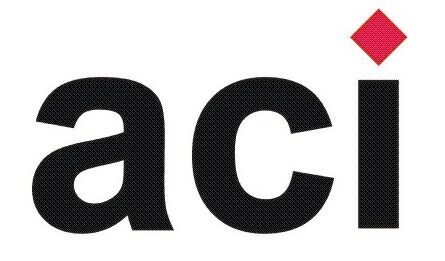Gender, Entrepreneurship, and Innovative Technologies
 Mini Track Chair: Dr Navjot Sandhu, Birmingham City University, UK
Mini Track Chair: Dr Navjot Sandhu, Birmingham City University, UK
In the current era it will be good to explore the gender linkages and examine the relationship between technological adoption and changes to social, political, economic and cultural paradigm. The objective of this track will be to provide a platform for original research and theorizing on the shifting meanings of gender. Women face many gender-based barriers while accessing finance and technologies, and available technologies often fail to meet their needs. It will be good to address various issues in the context of transnational phenomena and engaging in dialogues that cut across geographical boundaries. This track will attract papers from multi disciplines and gender considerations should inform policies to ensure that the different economic roles and challenges for both men and women are appropriately recognised, and adequate measures should be in place towards to meet the 2030 Sustainable Development Goals, including gender equality and women empowerment.
Topics welcomed for inclusion in the mini track include and are not limited to:
- Gender and innovation
- Female entrepreneurship in the digital ear
- Impact of entrepreneur’s gender on innovative activities
- Gender gap in STEM entrepreneurship
- Empowering women entrepreneurs through innovation
Gender Equality and Feminism in Society
 Mini Track Chair: Dr Rafidah Abd Karim, Universiti Teknologi MARA, Malaysia
Mini Track Chair: Dr Rafidah Abd Karim, Universiti Teknologi MARA, Malaysia
This track focuses on gender equality and feminism in society. Gender equality is when people of all genders have equal rights, responsibilities and opportunities. On the other hand, feminism can be seen as a movement to put an end to sexism, sexist exploitation, and oppression and to achieve full gender equality in law and in practice. It impacts people of all ages and backgrounds. A great many feminists seek some degree of equality between the genders in both the public and private sphere. Therefore, this track will explore five major topics which bring together the gender equality and society, gender equality and feminism in society, women empowerment and gender equality and feminism in indigenous society. This track offers an opportunity for academics, practitioners, consultants, and activists from around the world who are involved in the gender equality and society, women studies, feminism, gender and indigenous studies and the public and private sector and in gender studies to come together and exchange ideas. It is subsequently critical to encourage and expand research on this specific track concerns to acquire a better knowledge and significant insights on gender equality and feminism in society.
Topics welcomed for inclusion in the mini track include and are not limited to:
- Gender Equality and Women’s Right in Society
- Gender Equality, Feminism and Indigenous Society
- Gender Equality and Women Empowerment in Society
- Gender Equality and Feminism in Modern Society
- Feminism and Women’s Right Movements in Society
Gender in Research Performing Organisations



Mini Track Chair: Prof. Claudia Canali, Prof. Tindara Addabbo, University of Modena and Reggio Emilia, Italy and Dr. Sílvia Donoso López, Institute of Marine Sciences, Barcelona, Spain
In the European Research Area (ERA), there are objectives to increase women’s representation and retentions at all career levels and to promote the integration of a gender dimension in research and innovation. This should lead research organisations and higher education institutions to implement institutional change in human resources management, funding, decision-making and also in research programmes.
Gender Equality Plans (GEPs) provide a framework to undertake this institutional change and are assuming an increasing importance since they are required as an eligibility criterion for Research Performing Organisations (RPOs) to get access to Horizon Europe funding. Despite the number of RPOs adopting gender equality policies at different levels increasing in recent years, still few women reach top positions in academia and research organizations with various issues stalling their career progression. In addition to this, the gender gap is still high among the enrolled students in several academic disciplines.
Thus, there is a need for more research to examine these topics from a gender perspective and the purpose of this mini track is to explore this scope. Potential topics include, but are not limited to:
- Gender Equality Plans in Research Performing Organizations
- Gender Budgeting: tools and applications
- Gender equality in recruitment, careers and retention
- Policies for work-life balance
- Gender equality monitoring: measures and indicators
- Tackling the gender gap within the student population
- Integration of a gender dimension in research content
Female Gender Equality and Sustainability in Higher Education
 Mini Track Chair: Dr Serene Dalati Arab International University, Syria
Mini Track Chair: Dr Serene Dalati Arab International University, Syria
The new reality of management emphasizes a shift from stability to change, from competition to collaboration, from uniformity to diversity and from conventional and bureaucratic management to contemporary and team-based management. Higher education institutions are no exception to this approach, and they need strong leadership in an academic environment that can transcend time, place, geography, race, and above all gender. The imperative to empower female academics, is accelerating, and as international global businesses rely more and more on the significant roles played by female academics and researchers.
The aim of this mini track is to examine qualitative and quantitative approaches to research work related to female academics’ empowerment, equality and sustainability. Case studies on female role models in Academia, is valued and would bring relevant significance to the academic debate of this mini track. Potential topics include, but are not limited to:
- Factors affecting Female Academic Researchers in higher Education
- Empowering Female Academics in Business, Science and Technology
- Gender policies and practices at Higher Education sector
- Measuring Gender Gap in Academia
- Female Digital Transformation
Gender in Times of Crisis


Mini Track Chair: Emília Fernandes and Regina Leite, University of Minho, Portugal
Recent and today’s crises have increased gender inequality and discrimination against women throughout the world. To put it simply, all crises are gendered. Women and minorities have been mostly affected by unemployment, labour market barriers, precarious work conditions, heavy work-family loads and caregiving responsibilities, cuts on social benefits, work and domestic violence, and poverty. Although some countries have been particularly affected by different types of crises (e.g. financial, economic, pandemic, political, humanitarian), its impact on gender diversity and inclusion is now a worldwide phenomenon. Women and minorities are the ones who suffer the most both in their professional and personal lives. Recent research has extensively investigated the effects of COVID-19 pandemic on gender segregation and discrimination in family, work and society domains. Many scholars around the world have demonstrated how the pandemic crisis exposed and exacerbated prior inequalities at work and at home. More recently, the war and humanitarian crisis is raising new concerns and challenges regarding power and inequality dynamics around gender issues.
This mini-track aims to promote the production and dissemination of knowledge among researchers interested in gender issues in times of crisis. Real case studies, policies, institutional and management strategies, as well as initiatives and tools to combat and prevent gender inequality and violence during these unprecedented times are also welcomed.
Potential topics include, but are not limited to:
- The gender of (un)employment, precariousness and violence at work in times of crisis, particularly in the mostly affected sectors
- Gender experiences and inequalities in the health and social care sectors during times of crisis
- Gender violence at work and in the private and family contexts during times of crisis
- Gender experiences and inequalities in the family and non-work spheres enhanced by economic and financial, health and humanitarian crises
- Tools and instruments to prevent and respond to gender inequalities in the context of crises

